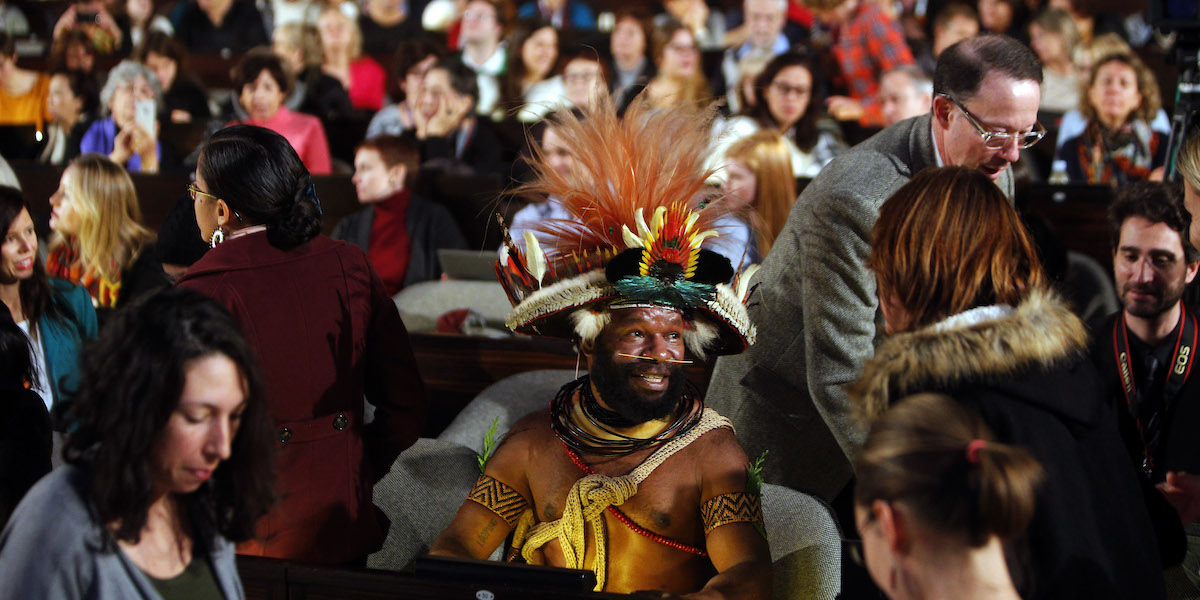Loading player
Papua New Guinea Prime Minister James Marape on Tuesday announced who will convene a government meeting this week to decide whether to declare a state of emergency in the province of Enga, where last Sunday at least 54 people were killed during a violent clash between tribal groups. Marape has defined what happened on Sunday was an “act of terrorism”, and he announced that Papua New Guinea will ask Australia to send some agents to help local police ensure a higher level of security in Enga province. Papua New Guinea is a country in Oceania north-east of Australia, which includes part of the island of New Guinea (the other part is Indonesian territory) and several islands around it. Enga is located in the central eastern part of New Guinea.
The government is receiving a lot of pressure to approve the state of emergency especially from the Enga police officers, who have defined Sunday’s attack was one of the worst massacres in the country’s recent history. According to the information That Post Courierone of the most read and authoritative newspapers in Papua New Guinea, obtained from some local police officers, two factions would have opposed each other in the clashes: the first composed of the Saa Walep and Ambulyn tribes, the other of the Kaekin, the Palinau and by the Sikins.
In the most isolated areas of Papua New Guinea, where most services are missing, starting from the streets, many communities still live in tribes following fairly primitive lifestyles, and episodes of violence linked to theft and territorial disputes occur regularly. The cause that triggered the latest clash, however, is not yet clear.
Elizabeth Kopel, a researcher at the National Research Institute of Papua New Guinea, has said al New York Times that in most cases the clashes between the tribes are due to the scarcity of water and food resources present in the Enga area, and also to conflicts relating to the ownership of some land. According to Survival, a non-governmental organization that works to protect indigenous peoples, there are more than 300 tribes in Papua New Guinea, and they speak over 800 different languages.
On Monday some photos began to circulate showing the bodies found by the police and civilians, which were temporarily piled inside a truck. The police have not yet released a definitive number of people killed, given that the search operations for the bodies are still ongoing. Serhan Aktoprak, a local official with the International Organization for Migration, said all those killed were men, and that the factions were made up mostly of mercenaries hired by tribal leaders.
Papuan police chief David Manning ordered officers to “use any means necessary to prevent further violence and retaliation” in the area. Miki Kaeok, a member of parliament for Enga, said the clashes were likely financed by the “leaders” and “educated elites” of the tribes involved in the clashes.
Papua New Guinea was a colony administered partly by the German Empire and partly by the British Empire. It has become independent since 1975, when it stopped being controlled by Australia, and is part of the Commonwealth, the group of countries that were part of the British Empire and which after independence have maintained more or less formal ties with the English crown . With almost 10 million inhabitants, it is one of the most populous countries in the South Pacific and is also one of those with the most varied population: its inhabitants belong to various ethnic groups, mainly Melanesian and Papuan, they are almost all Christians and the official language for trade is English.
However, the rapid growth of the population seen especially between the 1960s and the 1980s brought about numerous problems, which often still exist today: access to basic services, such as healthcare or education, is frequently not guaranteed, and unemployment and underemployment have increased poverty, also increasing tensions between various ethnic groups and crime, especially in urban areas.
– Read also: What country is Papua New Guinea
As various human rights organizations have observed, one of the biggest concerns regarding the country is that of gender violence. According to a survey by a parliamentary group, on average in Papua New Guinea a woman is beaten every thirty seconds, in most cases by her husband or partner. In total, it is estimated that more than 1.5 million women suffer gender-based violence every year (six times the Italian figure, in proportion). In the last five years there has not been a single woman in government: since 1975 there have only been 7 women who have had a role as ministers.
Elections are also affected by the country’s major structural problems and are generally characterized by fraud, corruption, violence and intimidation, but above all by a great organizational deficiency. Papua New Guinea has long been the object of China’s expansionist policies, linked above all to the developments of the “Belt and Road Initiative”, the large project which involves large investments in infrastructure throughout the world, also known as the “New Silk Road”, as is also happening in other countries in the area.
– Read also: In Papua New Guinea there is a lot of traffic of world leaders
